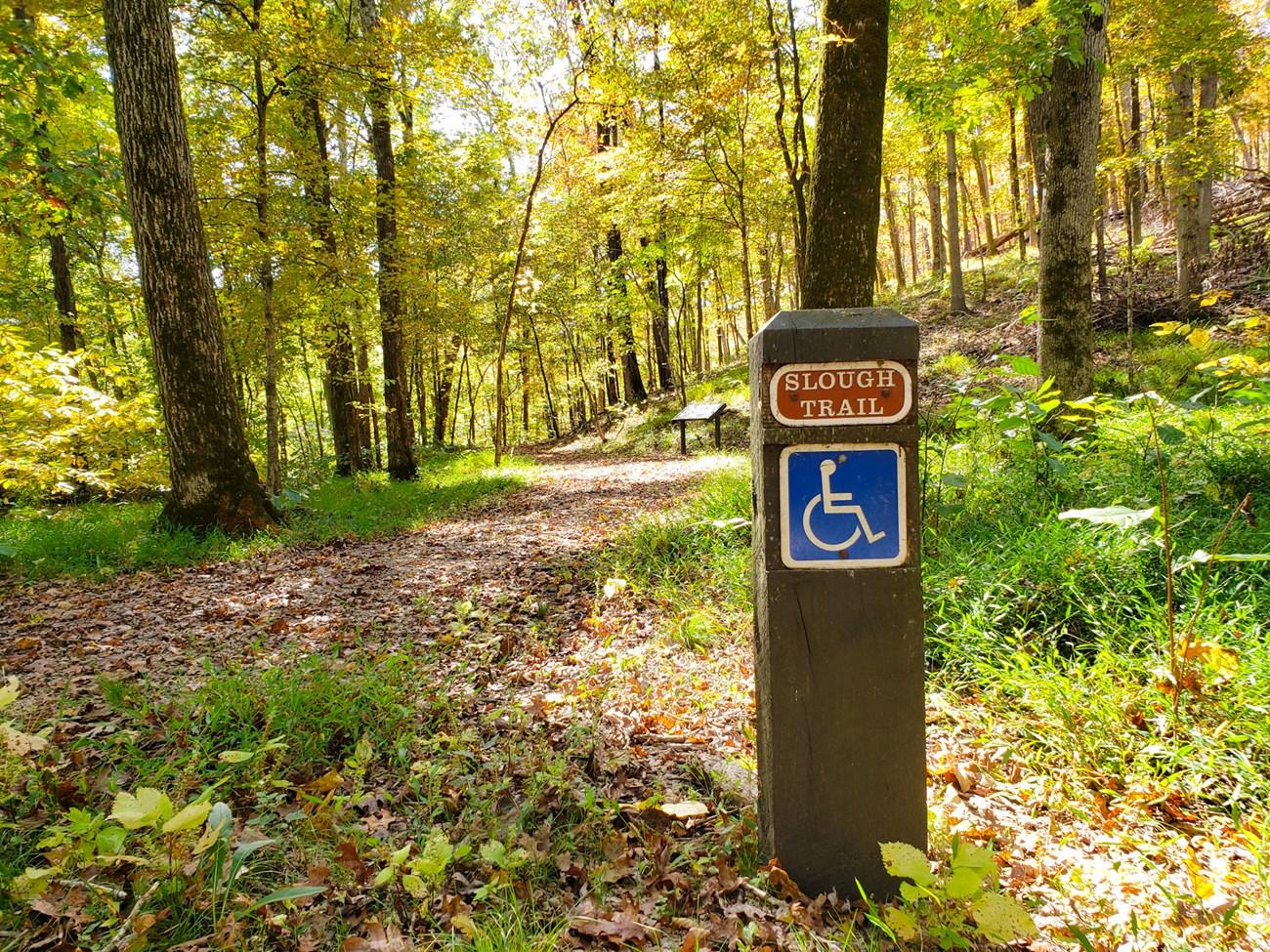
Exploring the Wild Beauty of Ozark National Forest
Nestled in the heart of Arkansas, the Ozark National Forest is a haven for nature lovers and adventure seekers alike. Spanning over one million acres, this vast forest offers a diverse range of landscapes, from rugged mountains and deep valleys to cascading waterfalls and serene lakes. Visitors can immerse themselves in the tranquility of nature while exploring the forest's extensive network of hiking trails, which cater to all levels of experience. The Ozark National Forest is home to a rich diversity of wildlife and plant species, making it a paradise for bird watchers and botanists. The forest's unique geology also provides ample opportunities for rock climbing and spelunking, with numerous caves waiting to be discovered. For those who prefer a more leisurely experience, the forest's scenic byways offer breathtaking views and numerous picnic spots, perfect for a relaxing day out with family and friends. Camping is a popular activity in the Ozark National Forest, with numerous campgrounds and dispersed camping areas available for visitors. Whether you prefer tent camping, RV camping, or even backcountry camping, the forest provides a variety of options to suit your needs. Fishing enthusiasts will also find plenty of opportunities to cast a line in the forest's many streams and lakes, which are teeming with fish. Whatever your interests, the Ozark National Forest promises an unforgettable outdoor experience for all who visit.
Local tips in Ozark National Forest
- Check the weather forecast before heading out; conditions can change rapidly in the forest.
- Bring plenty of water and snacks, especially if you plan on hiking or camping.
- Wear sturdy footwear, as trails can be rocky and uneven.
- Keep a map and compass or GPS device handy; cell service can be unreliable in remote areas.
- Visit during the fall for stunning foliage and milder temperatures.
Exploring the Wild Beauty of Ozark National Forest
Nestled in the heart of Arkansas, the Ozark National Forest is a haven for nature lovers and adventure seekers alike. Spanning over one million acres, this vast forest offers a diverse range of landscapes, from rugged mountains and deep valleys to cascading waterfalls and serene lakes. Visitors can immerse themselves in the tranquility of nature while exploring the forest's extensive network of hiking trails, which cater to all levels of experience. The Ozark National Forest is home to a rich diversity of wildlife and plant species, making it a paradise for bird watchers and botanists. The forest's unique geology also provides ample opportunities for rock climbing and spelunking, with numerous caves waiting to be discovered. For those who prefer a more leisurely experience, the forest's scenic byways offer breathtaking views and numerous picnic spots, perfect for a relaxing day out with family and friends. Camping is a popular activity in the Ozark National Forest, with numerous campgrounds and dispersed camping areas available for visitors. Whether you prefer tent camping, RV camping, or even backcountry camping, the forest provides a variety of options to suit your needs. Fishing enthusiasts will also find plenty of opportunities to cast a line in the forest's many streams and lakes, which are teeming with fish. Whatever your interests, the Ozark National Forest promises an unforgettable outdoor experience for all who visit.
When is the best time to go to Ozark National Forest?
Iconic landmarks you can’t miss
Ozark - St. Francis National Forest
Discover the unspoiled beauty and adventure awaiting you at Ozark - St. Francis National Forest, a top destination for nature lovers and outdoor enthusiasts in Arkansas.
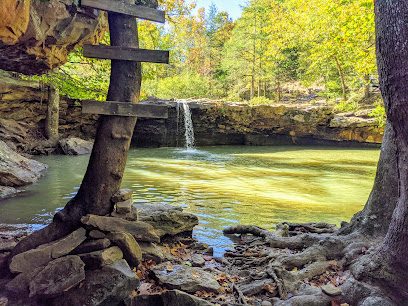
Christ of the Ozarks
Discover the serene beauty and spiritual significance of the Christ of the Ozarks, a monumental sculpture in Eureka Springs, Arkansas, surrounded by stunning landscapes.
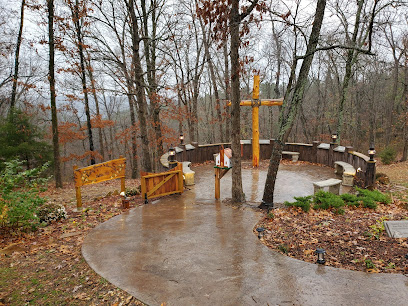
Hobbs State Park-Conservation Area
Explore the breathtaking beauty of Hobbs State Park-Conservation Area, Arkansas' outdoor paradise with trails, wildlife, and stunning lake views.
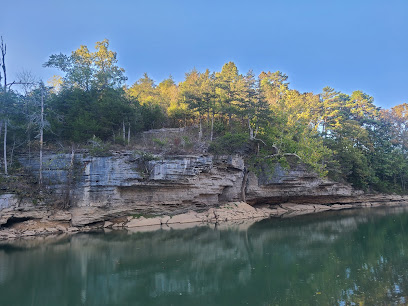
Arkansas Grand Canyon
Experience breathtaking panoramic views of the Ozark Mountains at the Arkansas Grand Canyon, a must-see scenic stop along Highway 7.
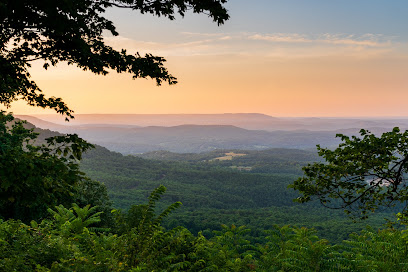
Ozark Folk Center State Park
Experience the Ozarks' living heritage through crafts, music, and culture in Mountain View, Arkansas.
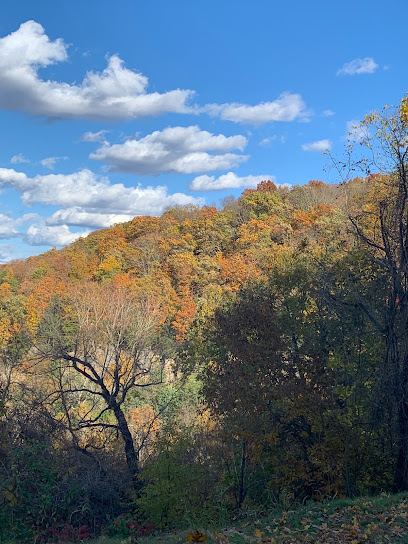
Glory Hole Falls
Experience the breathtaking beauty of Glory Hole Falls in Ozone, Arkansas—an oasis for nature lovers and adventure seekers alike.
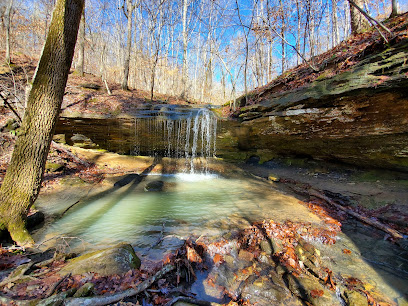
Yellow Rock Overlook
Hike to a panoramic vista in Devil's Den State Park, showcasing the beauty of Lee Creek Valley and the Ozark Mountains.
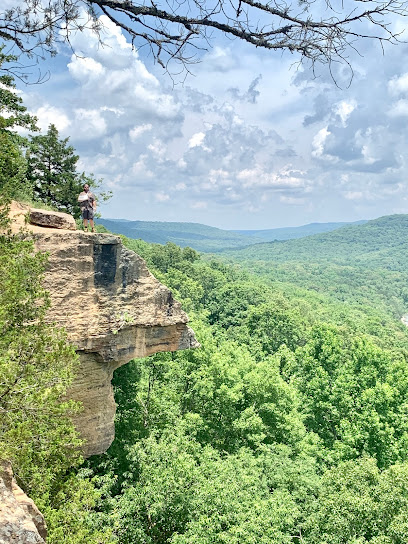
Boxley Valley Historic District
Discover a living history museum in Arkansas's Ozark Mountains, where pioneer heritage and natural beauty intertwine along the Buffalo National River.
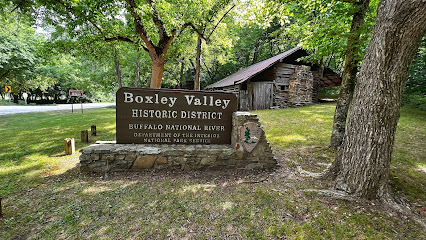
Parker-Hickman Farmstead
Explore a remarkably preserved 19th-century Ozark farmstead with historic buildings and scenic landscapes in Buffalo National River, Arkansas.
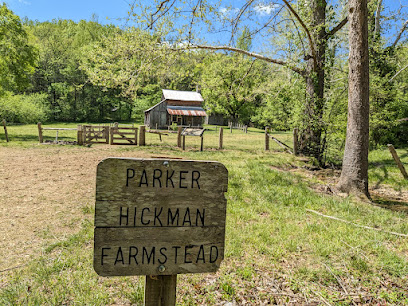
Pedestal Rocks Scenic Area
Experience the breathtaking beauty and unique rock formations of Pedestal Rocks Scenic Area in the heart of Arkansas's Ozark National Forest.
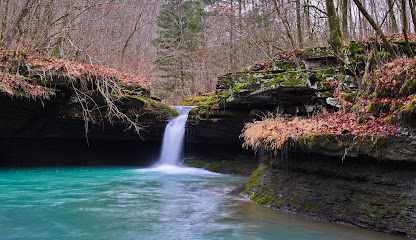
Pig Trail Falls
A stunning roadside waterfall along the Pig Trail Scenic Byway in the Ozark Mountains, perfect for a quick nature stop.
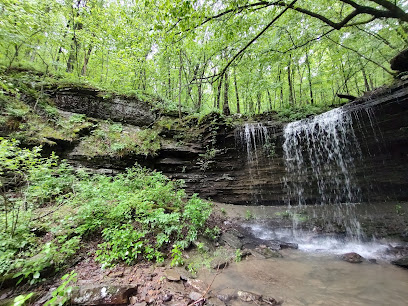
Ozark–St. Francis National Forest
Explore the breathtaking landscapes and diverse wildlife of Ozark-St. Francis National Forest in Arkansas, a haven for outdoor enthusiasts and nature lovers.
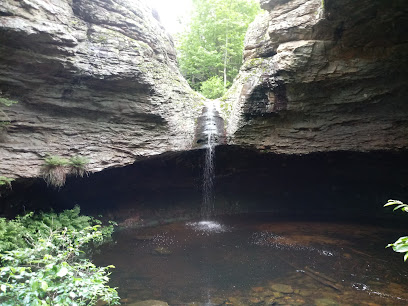
US Forest Service Boston Mountain Ranger Station
Discover the breathtaking beauty of Ozark at the US Forest Service Boston Mountain Ranger Station, your gateway to adventure in the Boston Mountains.
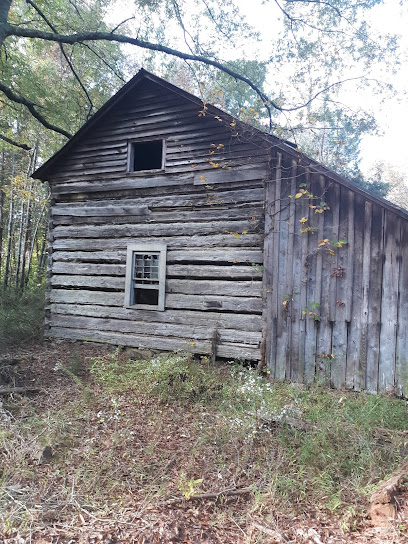
Ozark National Forest sign
Explore the natural wonders of Ozark National Forest, a scenic destination in Arkansas perfect for outdoor adventures and breathtaking landscapes.
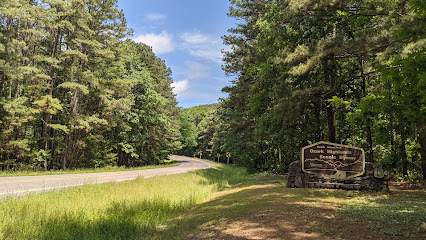
Unmissable attractions to see
Ozark - St. Francis National Forest
Discover Arkansas's natural beauty in the Ozark-St. Francis National Forest: hiking, camping, water activities, and scenic drives await!
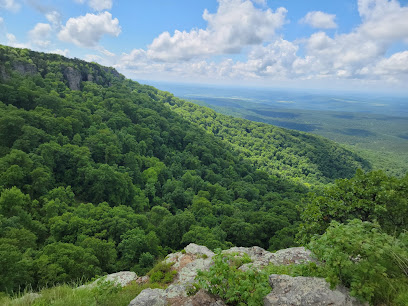
Christ of the Ozarks
Towering statue of Jesus Christ overlooking Eureka Springs, offering stunning views and a serene atmosphere atop Magnetic Mountain.
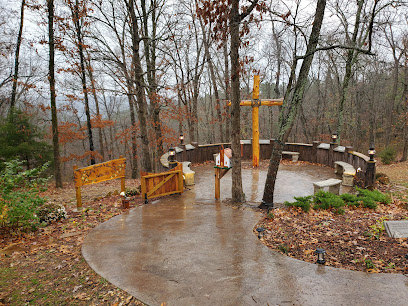
Cosmic Cavern
Discover the beauty and mystery of Arkansas's largest privately-owned cave, featuring stunning formations and unique underground ecosystems.
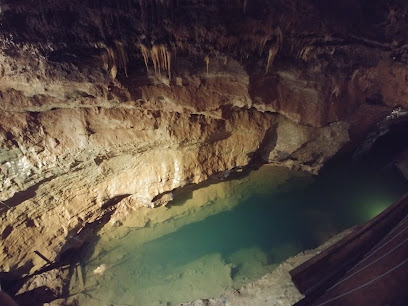
Botanical Garden of the Ozarks
Discover themed gardens, a butterfly house, and nature events at Fayetteville's beautiful Botanical Garden of the Ozarks. A vibrant destination for all ages.
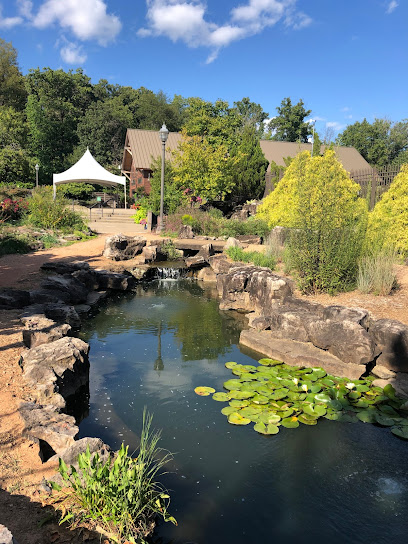
Arkansas Grand Canyon
Experience the breathtaking panoramic views of the Ozark Mountains at the Arkansas Grand Canyon, a must-see stop along scenic Highway 7.
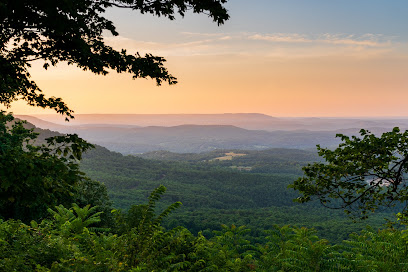
Onyx Cave
Discover the beauty and history of Arkansas's oldest toured cave, featuring stunning formations and a constant 57°F temperature, near Eureka Springs.
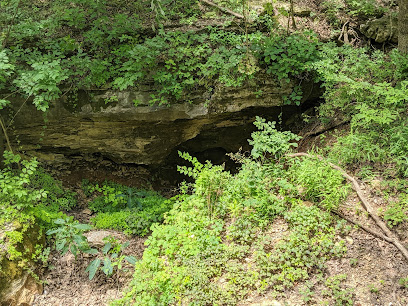
Ozark Folk Center State Park
Experience the Ozark way of life through crafts, music, and heritage at this unique Mountain View, Arkansas state park.
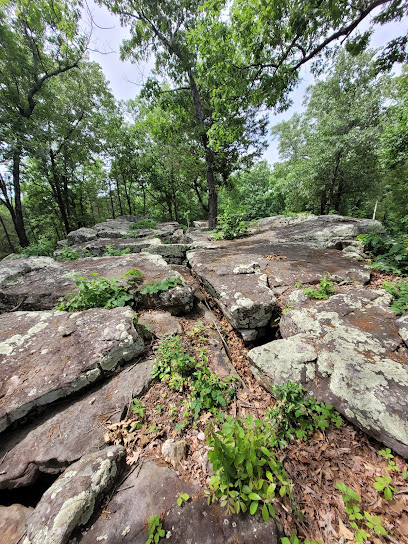
Mt. Sequoyah Cross
Experience the breathtaking views and serene atmosphere of Mt. Sequoyah Cross in Fayetteville, Arkansas, a perfect destination for reflection and beauty.
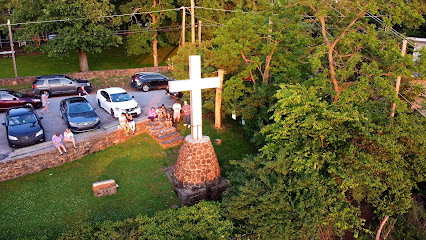
Kings River Falls Natural Area
Discover the natural beauty of Kings River Falls: hike to a scenic waterfall and swimming hole in the heart of the Ozark Mountains.
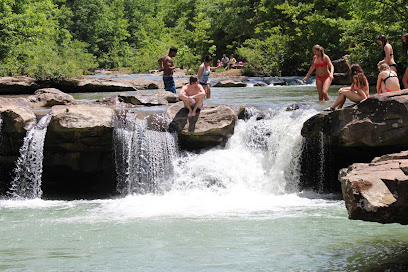
Holy Land Tour
Experience biblical history come to life at the Holy Land Tour in Eureka Springs, Arkansas. Explore authentic recreations and immerse yourself in ancient culture.
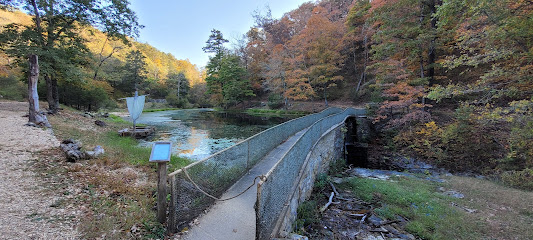
Pam's Grotto
Discover Pam's Grotto: A hidden waterfall oasis in the Ozark National Forest offering a short, scenic hike to a stunning natural grotto.
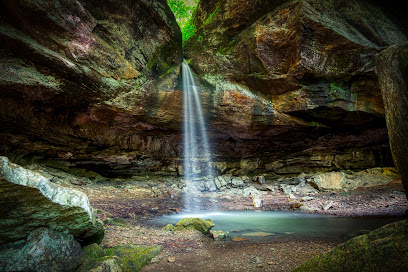
Magnolia Falls
Discover the enchanting beauty of Magnolia Falls, a hidden waterfall grotto in the Ozark National Forest, perfect for a family-friendly hike.
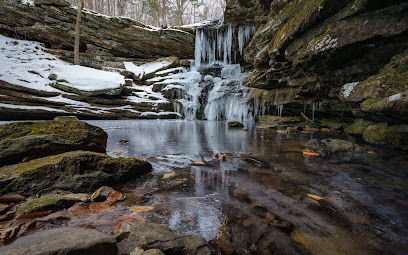
Pig Trail Falls
Discover the beauty of Pig Trail Falls, a scenic roadside attraction along the historic Pig Trail Byway in the heart of the Ozark Mountains.
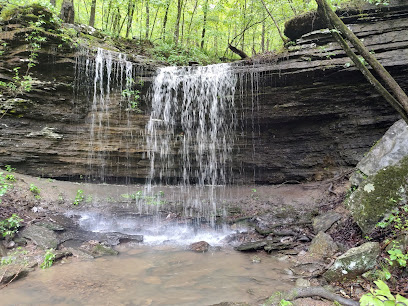
Moonshiners Cave
Discover the natural beauty and historical intrigue of Moonshiners Cave, a unique hiking destination near Devil's Den State Park in Winslow, Arkansas.
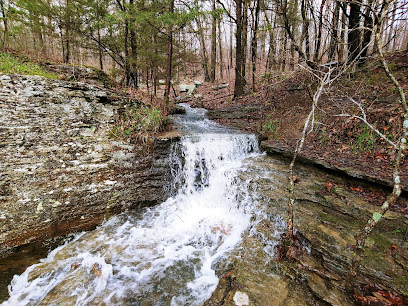
King's Bluff
Discover breathtaking views and a stunning waterfall at King's Bluff in the Ozark National Forest, a natural gem near Witts Springs, Arkansas.
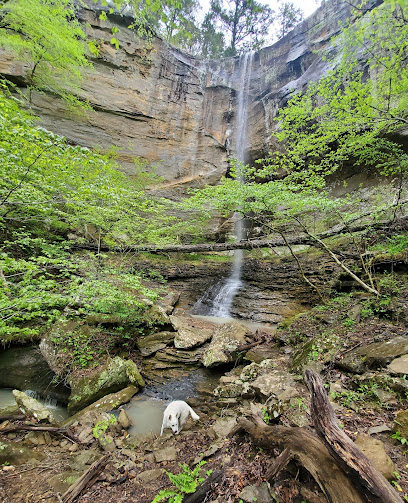
Essential places to dine
Grotto Wood-Fired Grill and Wine Cave
Discover exquisite American cuisine at Grotto Wood-Fired Grill and Wine Cave in Eureka Springs – where every meal is a culinary adventure.
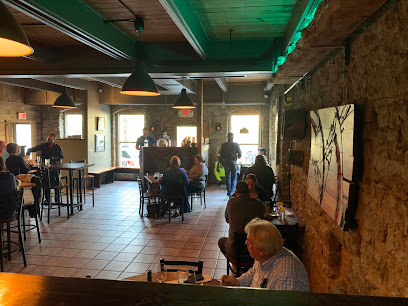
Granny's Kitchen
Discover the heartwarming flavors of Southern cuisine at Granny's Kitchen in Huntsville, Arkansas - where every meal feels like home.
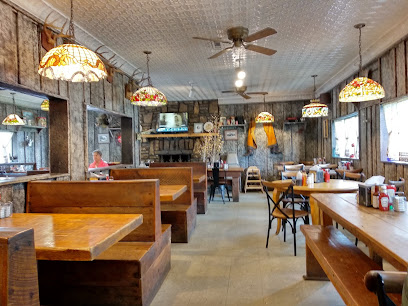
Cliff House Inn
Discover breathtaking views and rustic charm at Cliff House Inn – your gateway to the stunning Arkansas Grand Canyon.
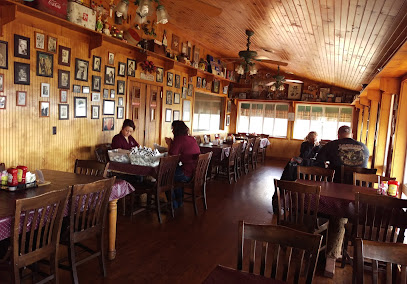
El Puerto Mexican Restaurant
Experience authentic Mexican cuisine at El Puerto Mexican Restaurant in Ozark – where vibrant flavors meet warm hospitality.

Low Gap Cafe
Discover culinary delights at Low Gap Cafe in Jasper - where American comfort meets Italian flair and fresh seafood in a charming setting.
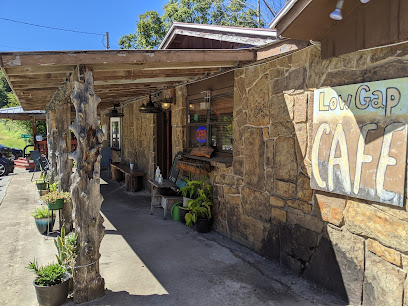
Ozark Cafe
Experience delicious breakfasts and Southern hospitality at Ozark Cafe in Berryville, Arkansas - perfect for families and travelers alike.
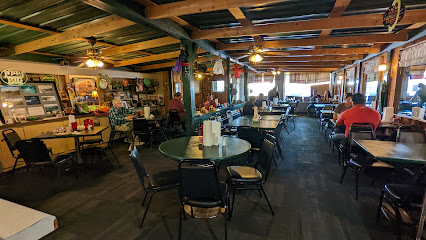
Roma Italian Restaurant
Experience authentic Italian cuisine at Roma Italian Restaurant in Ozark - where every dish tells a story.
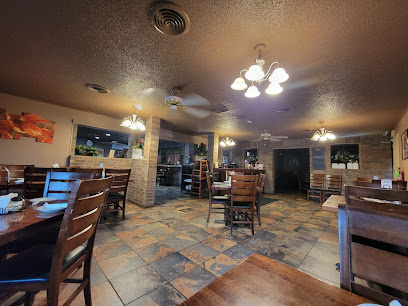
Rogue's Manor
Experience unparalleled fine dining at Rogue's Manor in Eureka Springs – where exquisite cuisine meets elegant ambiance.
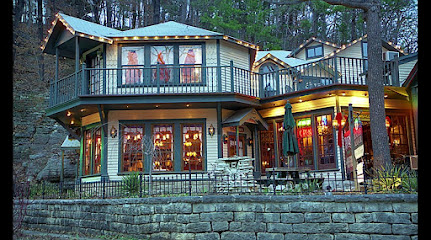
Wiederkehr Wine Cellar & Weinkeller Restaurant
Discover fine dining at Wiederkehr Wine Cellar & Weinkeller Restaurant in Arkansas, where local flavors meet exquisite wines amidst stunning Ozark scenery.
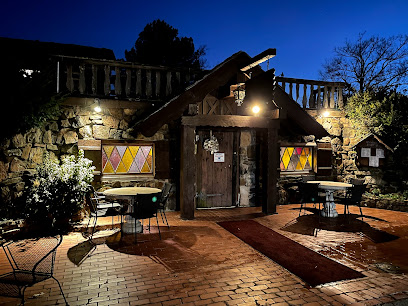
Ozone Burger Barn
Experience authentic Southern flavors at Ozone Burger Barn—home of mouthwatering burgers in the heart of Arkansas.
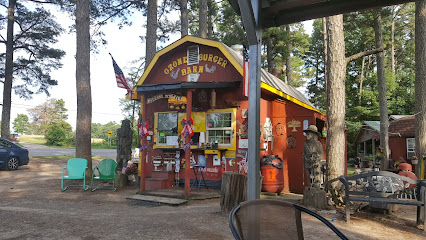
Pig Trail Bypass Country Cafe
Experience Southern hospitality at Pig Trail Bypass Country Cafe with mouthwatering hamburgers and charming ambiance in Elkins, Arkansas.
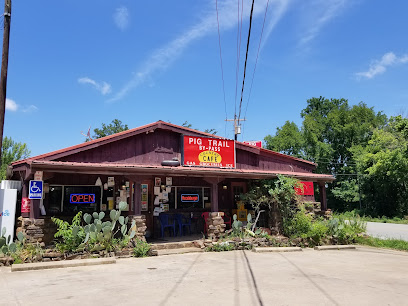
Crossbow Restaurant
Experience authentic American cuisine at Crossbow Restaurant in Huntsville - where flavor meets comfort in every dish.

Cattleman's Family Restaurant
Discover Cattleman's Family Restaurant: A cozy breakfast spot in Green Forest serving up delicious meals with local charm.
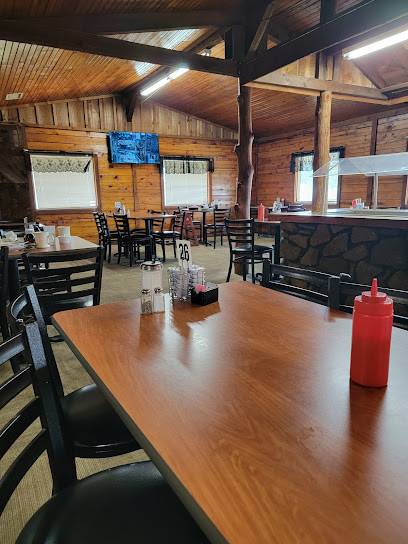
Neon Moon
Discover Neon Moon: A hamburger haven in Mountainburg, AR offering charbroiled delights and unforgettable flavors.
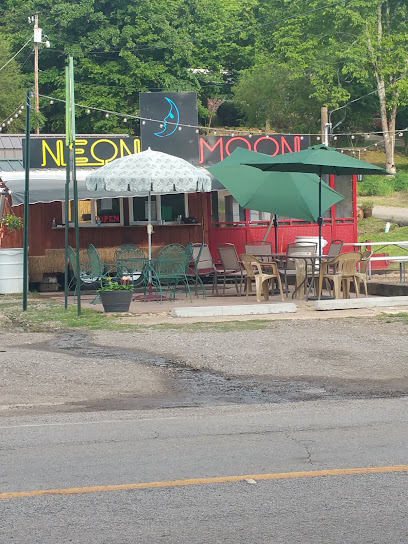
Zack's Place Pizza
Discover deliciousness at Zack's Place Pizza in Ozark - where fresh ingredients meet warm hospitality in every slice!
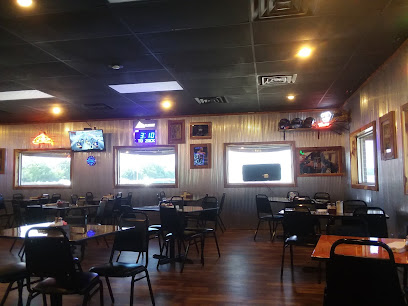
Markets, malls and hidden boutiques
Walmart
Discover Walmart in Ozark, Arkansas, your affordable one-stop shop for groceries, clothing, electronics, and more during your travels.

Love's Travel Stop
Discover Love's Travel Stop in Ozark, Arkansas: a 24/7 convenience hub offering fuel, food, and comfort for all travelers.
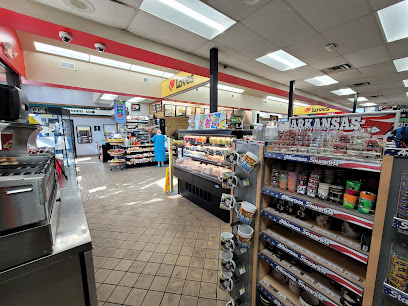
Turner Bend Store Cabins & RV Campgrounds
Discover the natural beauty and adventure of Turner Bend Store Cabins & RV Campgrounds in the Ozarks, perfect for camping, kayaking, and hiking.
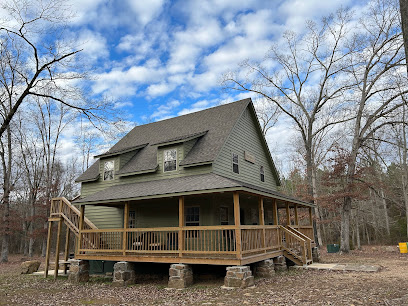
Oark General Store
Discover the charm of Oark General Store—where hearty meals and local treasures await in the scenic Arkansas Ozarks.
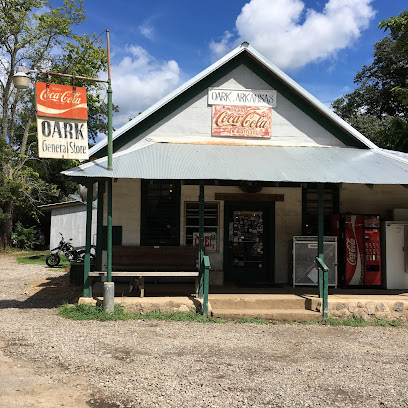
Scenic Point Gift Shop
Explore a treasure trove of unique gifts and local crafts at Scenic Point Gift Shop in Arkansas, a must-visit for every traveler.
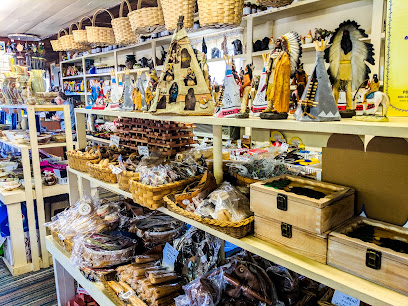
Byrd's Adventure Center
Discover the thrill of adventure at Byrd's Adventure Center, where outdoor activities and stunning landscapes await every visitor.
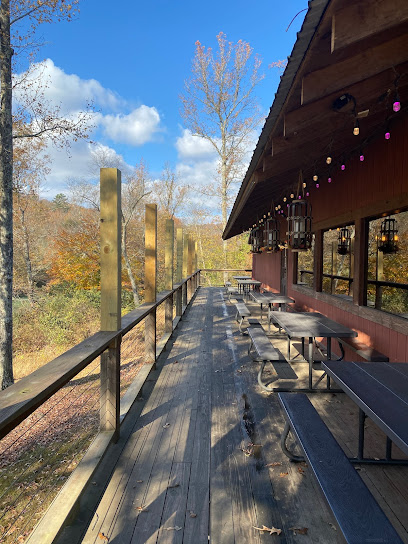
Bubba's Buffalo River Store
Discover unique souvenirs and local crafts at Bubba's Buffalo River Store in Jasper, Arkansas, your go-to shop for memorable keepsakes.
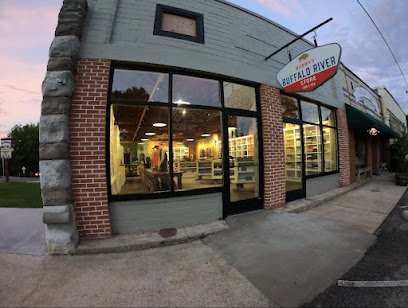
Ahart's Grocery
Discover St. Paul through Ahart's Grocery, a community gem offering local goods, fresh produce, and the warmth of Southern hospitality.
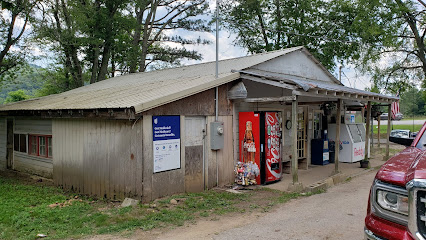
Artist Point Gift Shop and Cultural Center
Explore the charm of Artist Point Gift Shop and Cultural Center, where unique local artistry meets stunning scenic views in Mountainburg, Arkansas.
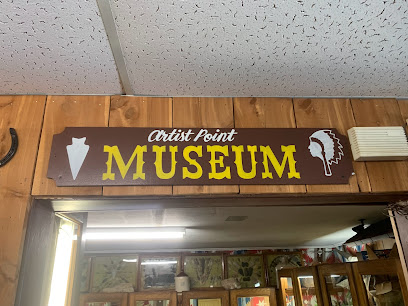
X-Mart Boutique
Explore X-Mart Boutique in Clarksville, Arkansas, for unique gifts, trendy clothing, and special occasion items that reflect local charm.

Ozark National Forest
Discover the breathtaking beauty and endless adventures in the Ozark National Forest, Arkansas' natural treasure for hiking, camping, and wildlife exploration.
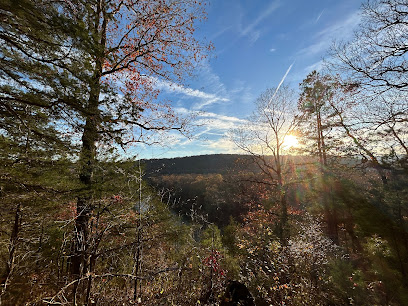
Red Lick Country Store
Discover the warmth and local flavor of Red Lick Country Store, your one-stop shop for gas, groceries, and delicious deli delights in Arkansas.
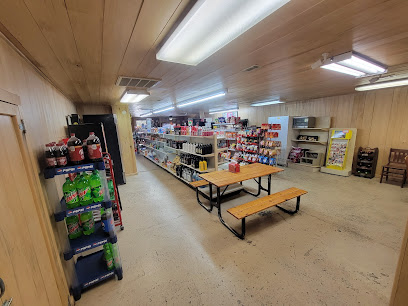
Hooked for Life Gift Shop
Explore Hooked for Life Gift Shop in Huntsville, AR for unique gifts and local treasures, blending shopping with a touch of outdoor adventure.

The Crystal Cottage Rocks & Beads
Explore The Crystal Cottage Rocks & Beads for enchanting jewelry and unique natural stones in the heart of Jasper, Arkansas.
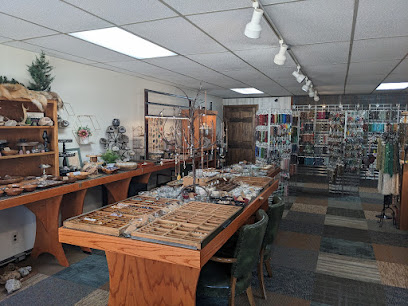
Eureka Vintage & Outdoor
Explore Eureka Vintage & Outdoor for unique gifts and local treasures in the heart of Eureka Springs, Arkansas.
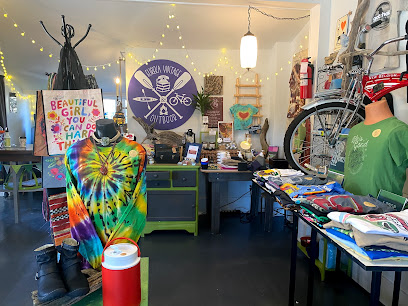
Essential bars & hidden hideouts
Grotto Wood-Fired Grill and Wine Cave
Experience extraordinary American cuisine at Grotto Wood-Fired Grill and Wine Cave, nestled in the heart of charming Eureka Springs, Arkansas.
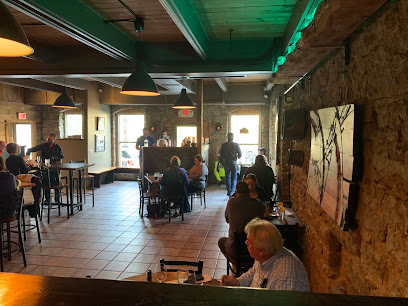
Balcony Restaurant & Bar
Discover Balcony Restaurant & Bar, where delicious American grill cuisine meets stunning views in the heart of Eureka Springs.
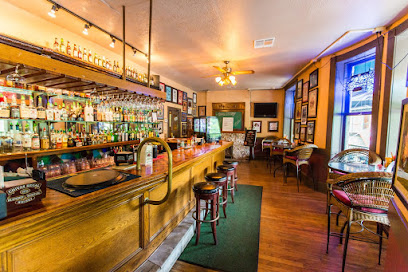
Buckets Sports Bar & Grill
Experience delicious grilled specialties and vibrant sports atmosphere at Buckets Sports Bar & Grill in Harrison, Arkansas, a top destination for food and fun.
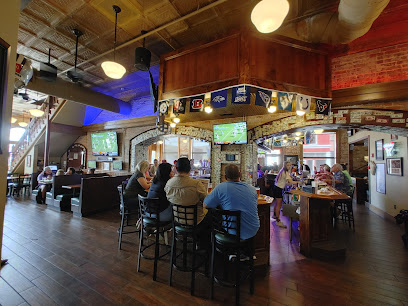
Crosswoods Restaurant & Sports Club
Experience Clarksville's culinary gem at Crosswoods Restaurant & Sports Club, where great food meets lively sports entertainment.
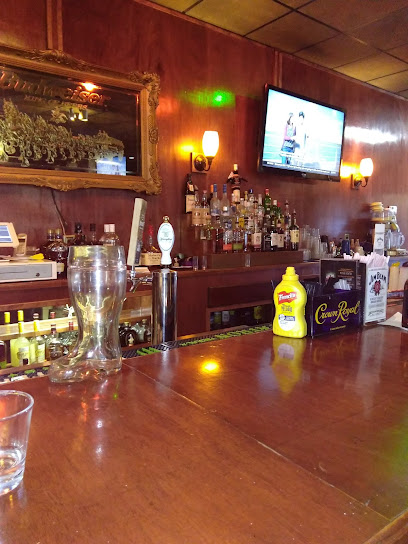
Legends Saloon
Discover Legends Saloon in Eureka Springs: where delicious food meets a lively atmosphere in the heart of the Ozarks.
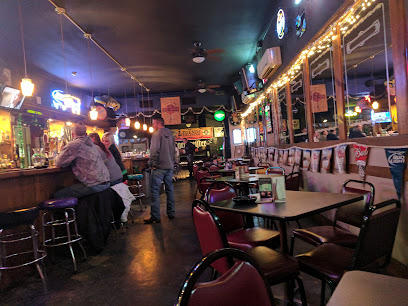
Gravel Bar at Wanderoo Lodge
Experience delightful dining and vibrant live music at the Gravel Bar, a scenic retreat in Eureka Springs, Arkansas.

TallGrass Bar and Grill
Experience the delightful flavors and inviting atmosphere at TallGrass Bar and Grill in Harrison, Arkansas—your culinary oasis in the Ozarks.
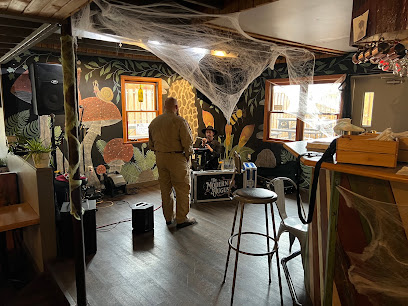
Smoke & Barrel
Discover the lively atmosphere and affordable drinks at Smoke & Barrel, Fayetteville's top bar and live music venue for tourists seeking local entertainment.
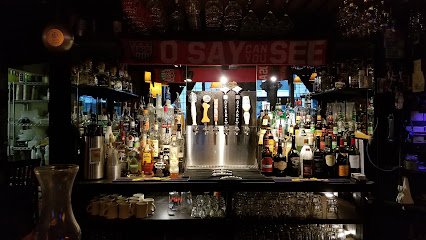
The Piano Bar
Experience vibrant nightlife with live music, delicious cocktails, and a welcoming atmosphere at The Piano Bar in Fayetteville, Arkansas.

Red Door Bar & Grill
Discover the best of Arkansas dining at Red Door Bar & Grill, where exceptional flavors meet a welcoming atmosphere.

Alligator Rays Cajun Sports Bar
Experience the vibrant Cajun cuisine and live music at Alligator Rays Cajun Sports Bar in Altus, Arkansas, where every meal is a celebration.
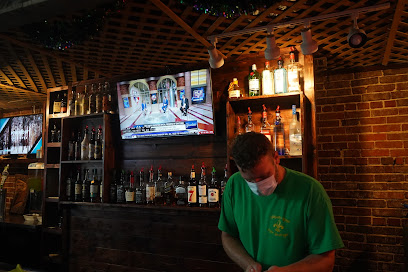
The Oasis - Harrison's #1 Bar and Grill
Discover the vibrant atmosphere of The Oasis, Harrison's top bar and grill, featuring delicious food, live music, and a lively nightlife scene.
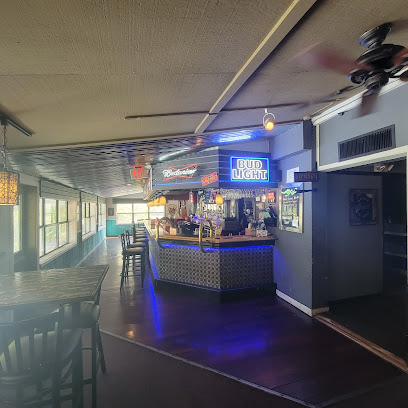
Buck’s Emma Ave. Bar & Tap
Experience the vibrant atmosphere and exceptional drinks at Buck's Emma Ave. Bar & Tap in Springdale, Arkansas.
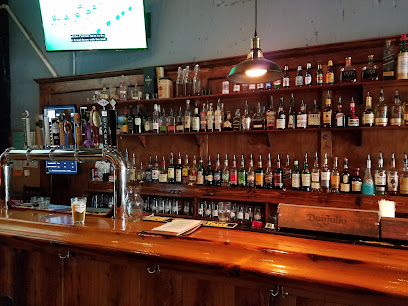
Missy's White Rabbit Lounge
Experience the vibrant nightlife of Eureka Springs at Missy's White Rabbit Lounge, where live music and a welcoming atmosphere await.
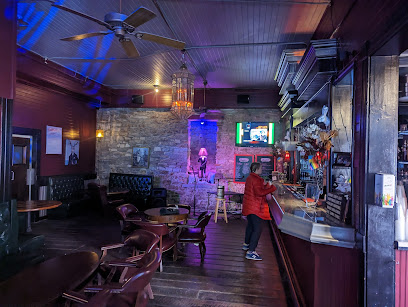
Local Phrases about Ozark National Forest
-
- HelloHowdy
[hahy-dee] - GoodbyeSee ya
[see-yuh] - YesYep
[yep] - NoNah
[na] - Please/You're welcomePlease/You're welcome
[pleez/yur welcome] - Thank youThank ya
[thank yuh] - Excuse me/SorryPardon me/My bad
[pahr-dn mee/my bad] - How are you?How y'all doin'?
[how yall doin] - Fine. And you?Fine. And you?
[fahyn. and yuh] - Do you speak English?Ya speak English?
[ya speak english] - I don't understandI don't git it
[ai dohnt git iht]
- HelloHowdy
-
- I'd like to see the menu, pleaseI'd like to see the menu, please
[ai'd lahk tuh see thu menu, pleez] - I don't eat meatI don't eat meat
[ai dohnt eet meet] - Cheers!Cheers!
[cheers] - I would like to pay, pleaseI would like to pay, please
[ai wood lahk tuh pay, pleez]
- I'd like to see the menu, pleaseI'd like to see the menu, please
-
- Help!Help!
[help] - Go away!Git outta here!
[git aht-uh here] - Call the Police!Call the Sheriff!
[kawl thu shur-iff] - Call a doctor!Call a doc!
[kawl a doc] - I'm lostI'm lost
[aim lost] - I'm illI'm sick
[aim sik]
- Help!Help!
-
- I'd like to buy...I'd like to buy...
[ai'd lahk tuh bahy] - I'm just lookingI'm just lookin'
[aim just lookin] - How much is it?How much is it?
[how much is iht] - That's too expensiveThat's too pricey
[thats too preis-ee] - Can you lower the price?Can you knock the price down?
[can yuh nok the preis doun]
- I'd like to buy...I'd like to buy...
-
- What time is it?What time is it?
[whut tahm is iht] - It's one o'clockIt's one o'clock
[its wun uh-klock] - Half past (10)Half past (10)
[haf past (ten)] - MorningMornin'
[mornin] - AfternoonAfternoon
[afternoon] - EveningEvenin'
[evenin] - YesterdayYesterday
[yesturday] - TodayToday
[tuh-day] - TomorrowTomorrow
[tuh-mor-oh] - 1One
[wun] - 2Two
[too] - 3Three
[three] - 4Four
[four] - 5Five
[fahyv] - 6Six
[siks] - 7Seven
[sev-uhn] - 8Eight
[ayt] - 9Nine
[nahn] - 10Ten
[ten]
- What time is it?What time is it?
-
- Where's a/the...?Where's a/the...?
[whurs a/the] - What's the address?What's the address?
[whuts the ad-dress] - Can you show me (on the map)?Can you show me (on the map)?
[can yuh show mee (on the map)] - When's the next (bus)?When's the next (bus)?
[whens the nekst (bus)] - A ticket (to ....)A ticket (to ....)
[uh tik-it (tuh)]
- Where's a/the...?Where's a/the...?
History of Ozark National Forest
-
Long before European settlers arrived, the Ozark region was inhabited by indigenous tribes such as the Osage, Quapaw, and Caddo. These tribes thrived on the abundant natural resources of the forest, relying on hunting, fishing, and agriculture for sustenance. The landscape was dotted with ancient mounds, rock shelters, and petroglyphs that provide insight into the rich cultural heritage of these early inhabitants.
-
The Ozark National Forest area began to see European exploration in the late 17th and early 18th centuries, primarily by French explorers. The forest was later settled by pioneers and homesteaders in the early 19th century. Many of these settlers were of Scotch-Irish descent and brought with them distinct cultural practices, which have influenced the region's traditions and music.
-
During the Civil War, the Ozark region was a strategic location due to its rugged terrain and natural resources. The forest witnessed numerous skirmishes and battles, including the Battle of Pea Ridge in 1862, which was a significant Union victory. The area's caves and hidden valleys also provided refuge for guerrilla fighters and bushwhackers.
-
In the late 19th and early 20th centuries, the timber industry began to thrive in the Ozark National Forest. The abundant hardwoods, including oak and hickory, attracted lumber companies. Logging camps and sawmills sprang up, transforming the landscape and economy of the region. This period also saw the establishment of railroads, which facilitated the transportation of timber.
-
Ozark National Forest was officially established in 1908 by President Theodore Roosevelt. The forest was designated to protect the land from over-logging and to preserve its natural beauty. The creation of the forest marked the beginning of significant conservation efforts, including reforestation projects and the development of recreational areas for public use.
-
Today, Ozark National Forest is not only a haven for outdoor enthusiasts but also a repository of cultural heritage. The forest is home to numerous hiking trails, including the Ozark Highlands Trail, and features recreational areas like the Blanchard Springs Caverns. Annual cultural events, such as folk festivals and craft fairs, celebrate the rich traditions of the Ozark people, from music and dance to artisanal crafts.
Ozark National Forest Essentials
-
Ozark National Forest is located in northern Arkansas. The nearest major airport is Northwest Arkansas National Airport (XNA) in Bentonville, which is approximately 1.5 to 2 hours away by car. Alternatively, you can fly into Bill and Hillary Clinton National Airport (LIT) in Little Rock, which is about 2 to 3 hours away by car. From either airport, you can rent a car or take a shuttle service to reach the forest. Public transportation options are limited, so renting a car is recommended.
-
The most practical way to explore Ozark National Forest is by car. The forest spans over a vast area with many scenic drives, hiking trails, and attractions that are best accessed by road. There are no public transportation services within the forest itself. If you prefer not to drive, some local tour companies offer guided tours of the area. However, having your own vehicle will provide the most flexibility and access to remote areas.
-
The official currency in the United States is the U.S. Dollar (USD). Credit and debit cards are widely accepted, including in most establishments within and around Ozark National Forest. However, it is advisable to carry some cash, especially when visiting more remote areas or smaller businesses that may not accept cards. ATMs are available in nearby towns such as Jasper, Clarksville, and Russellville.
-
Ozark National Forest is generally a safe destination for tourists. However, it is important to take standard safety precautions. Be aware of your surroundings, especially in more isolated areas. Avoid hiking alone, particularly in remote sections of the forest. Keep an eye on weather conditions, as sudden changes can occur. While crime rates targeting tourists are low, be cautious with your belongings and lock your vehicle when unattended.
-
In case of an emergency, dial 911 for immediate assistance. Cell phone reception can be spotty in some areas of the forest, so it is advisable to carry a map and inform someone of your plans before heading out. Medical facilities are available in nearby towns such as Jasper, Clarksville, and Russellville. Ensure you have travel insurance that covers medical emergencies and outdoor activities. For minor health issues, there are pharmacies in these towns where you can purchase over-the-counter medications.
-
Fashion: Do wear comfortable and weather-appropriate clothing, especially sturdy hiking boots. Avoid wearing flip-flops or sandals on trails. Religion: While there are no specific religious customs to follow, always be respectful of any cultural or historical sites you may encounter. Public Transport: There's no public transport within the forest. Be prepared to drive or book a local tour. Greetings: A friendly wave or a 'hello' is common when passing fellow hikers or locals. Eating & Drinking: Do pack out all trash and food waste; the forest operates on a 'Leave No Trace' principle. Don’t feed the wildlife as it can disrupt their natural habits and pose dangers.
-
To experience Ozark National Forest like a local, consider visiting during off-peak times such as weekdays or the shoulder seasons (spring and fall) to avoid crowds. Check out local festivals and events in nearby towns for a taste of regional culture. Engage with local park rangers and residents for insider tips on hidden gems and lesser-known trails. Don’t miss the chance to explore the Ozark Highlands Trail, a favorite among locals, and the picturesque Hawksbill Crag (Whitaker Point). Also, try local eateries in nearby towns for authentic Southern cuisine.
Trending Landmarks in Ozark National Forest
-
Ozark - St. Francis National Forest
-
Christ of the Ozarks
-
Hobbs State Park-Conservation Area
-
Arkansas Grand Canyon
-
Ozark Folk Center State Park
-
Glory Hole Falls
-
Yellow Rock Overlook
-
Boxley Valley Historic District
-
Parker-Hickman Farmstead
-
Pedestal Rocks Scenic Area
-
Pig Trail Falls
-
Ozark–St. Francis National Forest
-
US Forest Service Boston Mountain Ranger Station
-
Ozark National Forest sign
Nearby Cities to Ozark National Forest
-
Things To Do in Russellville
-
Things To Do in Rogers
-
Things To Do in Bentonville
-
Things To Do in Fort Smith
-
Things To Do in Branson
-
Things To Do in Conway
-
Things To Do in Hot Springs
-
Things To Do in Joplin
-
Things To Do in Sherwood
-
Things To Do in Little Rock
-
Things To Do in North Little Rock
-
Things To Do in Broken Arrow
-
Things To Do in Tulsa
-
Things To Do in Pine Bluff
-
Things To Do in Bartlesville




